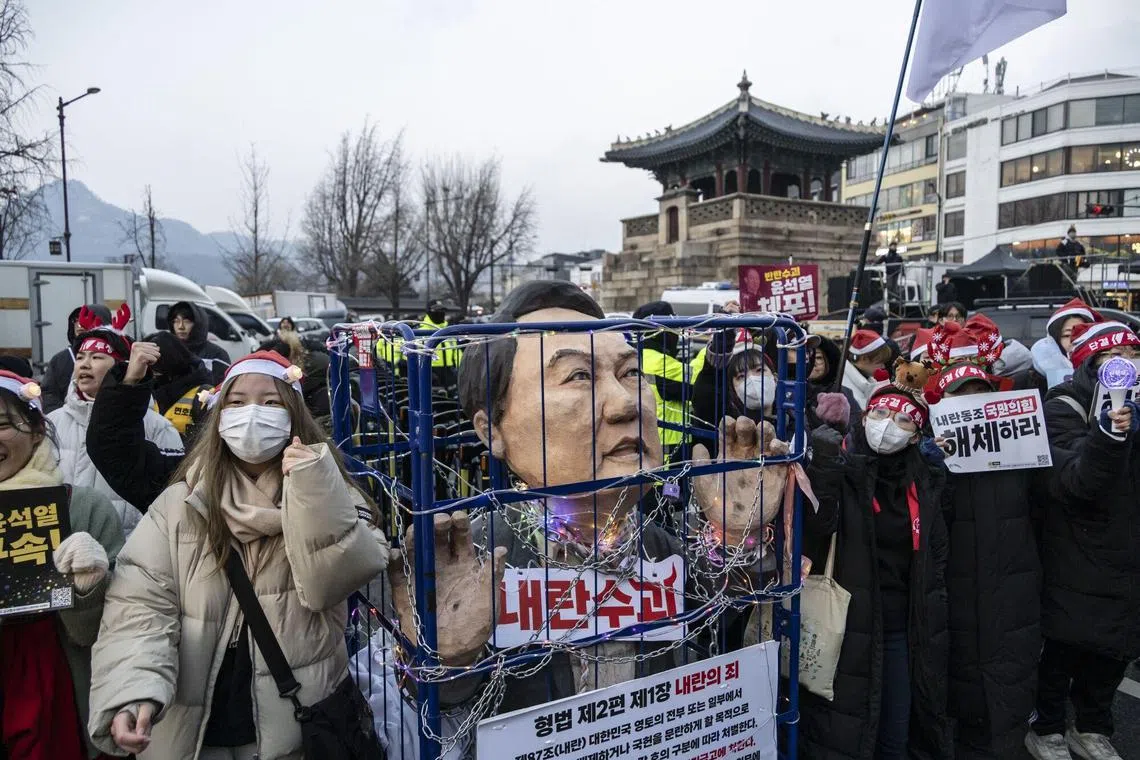Bangladesh's Foreign Ministry on Monday said a formal request had been made to India to have former Prime Minister Sheikh Hasina returned to the country.
Relations between the two South Asian neighbors have been fraught since Hasina was toppled amid violent student-led protests against her rule, seeking refuge across the border.
What the two sides have said
The acting head of Bangladesh's Foreign Ministry, Touhid Hossain, said "a note verbale" had been sent to the Indian government saying that "the Bangladesh government wants her [Hasina] back here for judicial process."
Hossain did not elaborate on the judicial process, but Hasina was last month summoned to appear in court in Dhaka to face charges of "massacres, killings, and crimes against humanity."
Hasina fled Bangladesh by helicopter as crowds stormed her palace on August 5. Dozens of her allies have since been taken into custody accused of involvement in a police crackdown that killed more than 700 people.
A spokesperson from India's Ministry of External Affairs said the request had been received.
 Hasina is accused of involvement in mass arrests and the extrajudicial killings of opponentsImage: Bangladesh Prime Minister's Office/AFP via Getty Images
Hasina is accused of involvement in mass arrests and the extrajudicial killings of opponentsImage: Bangladesh Prime Minister's Office/AFP via Getty Images"We confirm that we have received a note verbale from the Bangladesh High Commission today in connection with an extradition request," the spokesperson said. "At this time, we have no comment to offer on this matter."
Why is the request being made now?
Nobel laureate Muhammad Yunus, who heads the Bangladeshi interim administration, last month said he would demand that India extradite Hasina to face trial over alleged crimes, including mass detentions and the extrajudicial killings of her political opponents.
A Dhaka-based domestic war crimes court has already issued warrants for the arrest of Hasina and her close aides. The Bangladeshi government has also urged the international police organization Interpol to help have Hasina detained.
Yunus has also been irked by Hasina's criticism of his administration from New Delhi since she was ousted, accusing him of failing to protect minorities, especially Hindus.
Tensions reached their worst recently with the arrest of a Hindu spiritual leader in Bangladesh.
India also stopped issuing visas to Bangladeshis except for emergency medical visas, and many Indian citizens working on infrastructure projects left Bangladesh because of security threats.
Bangladesh protesters struggle to recover from injuries
The formal request to New Delhi also comes two weeks after India's foreign minister visited Bangladesh. The two countries said they were keen to end the diplomatic discord and pursue more constructive relations.
It was the first high-level visit by an Indian official since Hasina's 15-year rule ended.
The talks touched on attacks on the Hindu minority in Bangladesh, as well as an attack on a Bangladeshi diplomatic mission in India.
rc/sms (AFP, AP, Reuters)

 By Deutsche Welle (Asia) | Created at 2024-12-23 17:20:43 | Updated at 2024-12-23 23:47:15
7 hours ago
By Deutsche Welle (Asia) | Created at 2024-12-23 17:20:43 | Updated at 2024-12-23 23:47:15
7 hours ago








